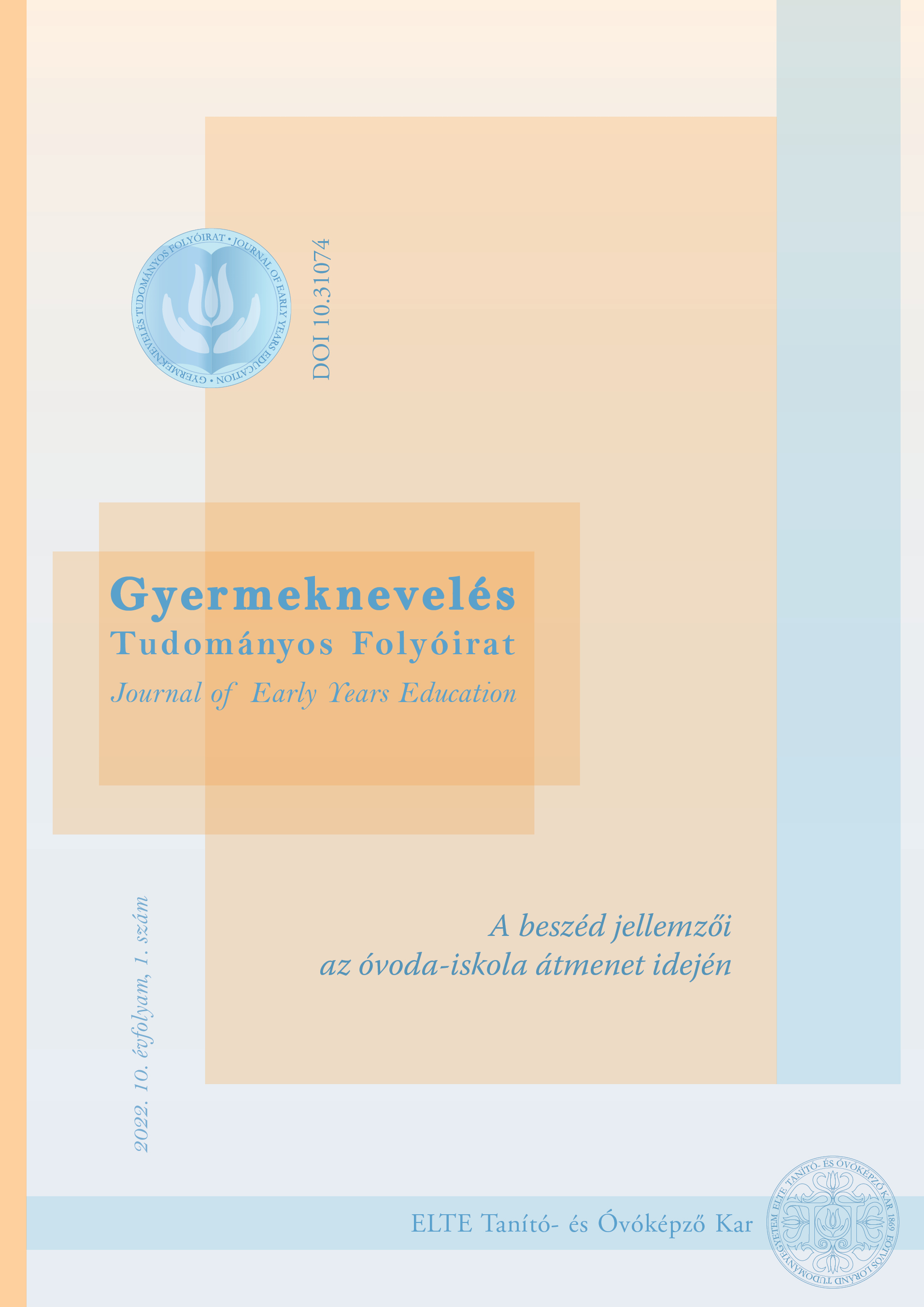Atypical pragmatic development
DOI:
https://doi.org/10.31074/gyntf.2022.1.113.132Keywords:
atypical pragmatic development, developmental disorders, socioeconomic status, cognitive skills, language developmentAbstract
The aim of this paper is to review the common features and causes of atypical pragmatic development. Pragmatic competence makes possible effective participation in communication under dynamically changing circumstances, i.e. in a socio-cultural, environmental and cognitive matrix. Alongside structural language development, there exists also pragmatic development during first-language acquisition. However, pragmatic development differs significantly from the development of structural language skills in terms of both pace and duration. The development of pragmatic skills begins before grammatical development, but it takes much longer.
The quality of pragmatic development is fundamentally influenced by the child’s immediate environment and socioeconomic status. Hence underprivileged circumstances may delay or inhibit pragmatic development.
Research in recent decades exploring the genetic and neuroanatomical background of certain developmental disorders has identified patterns that may lead to atypical development in social communication and pragmatic skills. Genetic and neuroanatomical characteristics are inseparable from cognitive factors that underlie pragmatic skills. Although the results are controversial, some remarkable evidence can nonetheless be noted. . Pragmatic abilities are strongly associated with structural language skills, executive functions and the theory of mind.
Autism spectrum disorder (ASD), attention-deficit/hyperactivity disorder (ADHD), developmental language impairment (DLD), or intellectual disability are commonly associated with pragmatic impairment. This study also discusses social pragmatic communication disorder (SPCD), a developmental disability, with significant difficulty in social communication being the main/leading symptom and the main diagnostic criterion. There is also developmental disorder whose primary symptom and main diagnostic criterion is significant difficulty in social communication: the present study also discusses social pragmatic communication disorder (SPCD).
The study aims to provide an overview of the socioeconomic, genetic and neuroanatomical factors as well as the cognitive conditions that can lead to pragmatic difficulties in atypical development. It also defines the characteristic of atypical pragmatic functioning in those developmental disorders most at risk of pragmatic impairment.
Downloads
Downloads
Published
How to Cite
Issue
Section
License
Copyright (c) 2022 Author

This work is licensed under a Creative Commons Attribution-NonCommercial-ShareAlike 4.0 International License.

